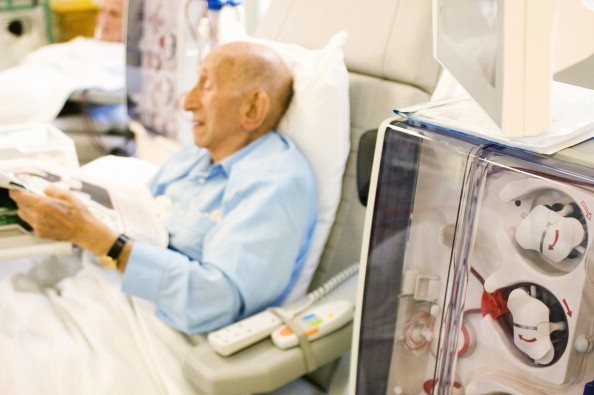A law that guarantees a paid leave of up to 10 days annually for single-child adults who need to care for their hospitalized older parents was passed by Fujian Province on Jan. 22, China Daily reported.
The measure, which is set to go into effect on March 1, intends to protect residents at age 60 or above. It states that wages and benefits of single-child adults who take time off for the said purpose should be paid continuously.
Employers who refuse to continue paying wages and benefits will be punished, said Xu Hua, vice-chairwoman of the Legislative Affairs Commission of the Fujian Provincial People’s Congress Standing Committee.
Xu added that if employers still refuse to pay past a deadline, the Department of Human Resources and Social Security will levy fines ranging from 2,000 yuan to 20,000 yuan ($290 to $2,900) in accordance with Regulations on Supervision of Labor Security
The employers will also be restricted in bidding, obtaining financing, and market access, and they will be listed as "promise breakers."
By the end of 2015, there were 5.15 million seniors aged 60 and above in Fujian, which represents the 13.4 percent of the province’s population.
For the whole country, the number was 222 million, or more than 16 percent of the population.
In 1996, a national law was passed by the Fujian’s top legislative body on the “protection of the rights and interests of the elderly.”
The law was amended twice in 2012 and 2015. The latest amendment states that senior have the right to obtain material assistance from the State and families are required to care for them.
Some experts and members of the public, however, are doubtful if the law will work in the private sector. They called the paid leave as “innovative,” but said it will be difficult to put into practice.
“Workers are not even paid now for some normal vacations. It remains doubtful that this paid leave will be carried out,” said Gan Mantang, a sociology professor at Fuzhou University.
Last year, China lifted its three-decade long mandatory one-child policy due to low birth rates, dropping of the number of women of childbearing age, and death due to aging population.
China’s two-child policy is said to being additional 15 million newborns in the next five years, pushing the annual number of births to 21 million.
However, many couples remain reluctant to have second babies despite lifting of one-child policy due to high cost of living.



























